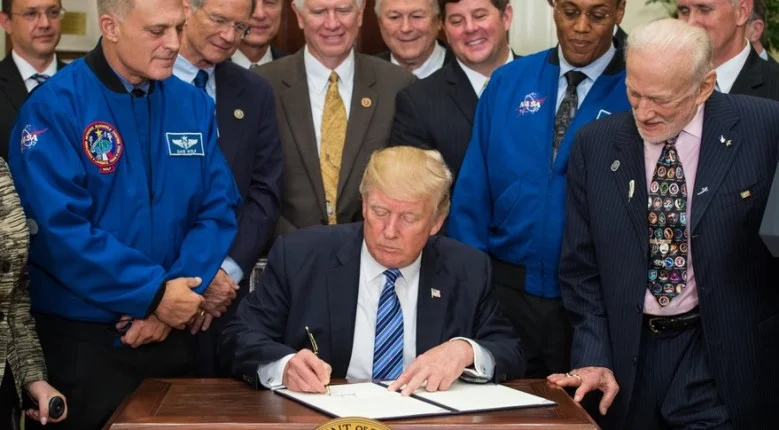
Trump’s Space Policy: Confusion and Contradictions Amidst Lunar Race with China
The Trump administration's approach to space policy is raising eyebrows and sparking confusion within the industry. While ambitious goals like landing humans on Mars echo Elon Musk's vision, the path to achieving them remains unclear. The uncertainty stems from a leadership vacuum, budget cuts, and conflicting priorities, leaving industry insiders and congressional aides grappling for answers. Is this a calculated strategy or haphazard decision-making amidst a mounting space race with China?
The proposed NASA budget serves as a prime example of these contradictions. It slashes funding for key lunar projects, including a lunar space station, while heavily investing in a crewed Mars mission. This shift towards human spaceflight over scientific exploration raises questions about the administration's long-term vision and its alignment with NASA's nominee, Jared Isaacman, who supports those missions. The agency declined to comment on the discrepancy.
According to a Politico report, multiple industry officials and Hill staff revealed widespread confusion about who's steering the ship. The National Space Council, traditionally a key player in shaping space policy, is currently unstaffed, further complicating matters. While Vice President JD Vance is slated to lead the council, his level of involvement remains uncertain. All of this has left people wondering where decisions are coming from.
Adding to the complexity, the National Security Council (NSC) has seen significant staff reductions, limiting its capacity to engage in space policy. Despite its historical importance, most industry officials interviewed reported minimal interaction with the NSC. The Office of Science and Technology Policy, while technically focused, is not usually central in orchestrating American space policy.
Without a clear, overarching space policy, individual agencies like the Office of Management and Budget (OMB) may exert undue influence. Accusations are surfacing that the substantial proposed cuts to NASA's budget are primarily driven by OMB head Russell Vought, whose prior think tank advocated for slashing NASA's science budget to prioritize lunar landings.

However, there's a glimmer of hope. Isaacman's confirmation as NASA administrator could provide a counterweight to budget concerns. Also, the White House plans to retain the National Space Council after speculation that it would eliminated and serve as an advocate for space amid pressures to cut budgets. The move will continue after President Donald Trump reestablished it in 2017.
Another report noted that while the Biden administration retained the council, with Vice President Kamala Harris leading it, the group had a lower public profile with fewer meetings and policies.

Ultimately, the success of Trump's space ambitions hinges on establishing clear leadership, defining priorities, and fostering collaboration between agencies. Will the revived National Space Council bring order to the chaos, or will conflicting agendas continue to cloud the future of U.S. space exploration? Share your thoughts and predictions in the comments below.